Have you ever encountered something that’s “ironically foreign?” That’s how married couple and business partners Sean Sherman and Dana Thompson describe Native American food and its pervasive lack of presence in the bustling foodie American landscape. “It’s the food from exactly right here that’s exactly under your feet that seems foreign for some reason. People are always asking me where to get the ingredients for my recipes: Where do you buy fresh cedar for tea? You don’t. You go outside with a knife.”
It’s this same thinking that inspired Sherman and Thompson to create The Sioux Chef, a team of Anishinaabe, Mdewakanton Dakota, Navajo, Northern Cheyenne, Oglala Lakota, and Wahpeton-Sisseton Dakota peoples that identify as chefs, ethnobotanists, food preservationists, adventurers, foragers, caterers, event planners, artists, musicians, food truckers, and food lovers. The team behind The Sioux Chef is committed to revitalizing Native American cuisine, re-identifying North American gastronomy, and reclaiming an important culinary culture long buried and often inaccessible.
Chef Sean has been cooking for over 30 years and has studied extensively to better understand Native American farming techniques, harvesting and wild food usage, land stewardship, salt and sugar making, hunting and fishing, elemental cooking techniques, and Native American migrational histories. This holistic approach allows Sherman, Thompson, and the rest of The Sioux Chef team to more fully and authentically instill and revitalize Native American cuisine in today’s world.
Most recently these efforts have grown to encompass a new restaurant, Owamni by the Sioux Chef. Featuring a menu built exclusively around native food, Owamni by the Sioux Chef defines itself as a modern Indigenous full-service establishment. It features foods of Mni Sota Makoce, Land Where the Waters Reflect the Clouds, that allow visitors to experience the true flavors of North America in a new, unprecedented way. And it’s located at OwamniYomni, the sacred site of peace and well-being for the Dakota and Anishinaabe people, where St. Anthony Falls meets the mighty Mississippi.
So, what is Native American food? For Owamni by the Sioux Chef Sherman and Thompson curate their menu around a mix of indigenous game, fish, birds, insects, and wild plants. Visitors can find a plethora of unique, authentic menu items inclusive of smoked Lake Superior trout, cedar braised bison, conifer preserved rabbit, and grilled forest mushrooms. Dishes also include standout indigenous grains like corn, wild rice, and hominy. Everything is exquisitely paired, plated, and served, and flavors promise to dazzle your tastebuds while also providing insight into a world that is often culturally forgotten and culinarily untapped.
What’s missing from its menu? Notably anything with a distinctly European influence. Indeed, ingredients such as wheat, flour, cane sugar, dairy, and lemons – all staples of Eastern kitchens – are intentionally omitted from the list of offerings because Sherman and Thompson believe they reflect a legacy of colonization and Native oppression. This is a decidedly decolonized kitchen.
In October the New York Times featured Owamni by the Sioux Chef in its 2021 Restaurant List of “50 Places in America we’re most excited about right now.” In fact, two of the fifty identified restaurants across the United States hail from the Twin Cities – the other being Ann Kim’s Sooki & Mimi[1] – and this accolade paired with the local press that has continued to buzz over the last couple months convinced me and Cam that we had no choice but to check this place out for ourselves. So, shortly after reading the article I made a reservation for the next available time we could swing: Which just so happened to be last Sunday.
We were excited for our reservation and giddy as we climbed the steps of the Mill City waterworks building. This was something wholly new and unprecedented that we couldn’t wait to witness firsthand. Walking into the restaurant, I was immediately struck by the sweeping views of St. Anthony Falls and the Mississippi River. I love that this location is equal parts scenic and symbolic: It overlooks a riverside site that is sacred to the Dakota and Anishinaabe peoples and is simultaneously woven into the beautiful hubbub and varied fabric that makes up modern, everyday life. Throughout our entire experience we couldn’t help gaze out the floor-to-ceiling glass windows in wonder, marveling at the simple beauty of the cold December afternoon while reflecting on what life in this spot must have been like for the Native people who lived here only a couple hundred years ago.
We had a hard time deciding what to order. Everything on the menu fell under novel, new, and uncharted territory. Knowing the restaurant structures itself around communal plates that are meant to be shared family-style, we settled on a couple different dishes to sample, including cedar + maple baked beans, nixtamal + chili, roasted sweet potato with scallions and indigenous chili crisp, and two different types of choginyapi, or open-faced corn sandwiches – elk focused for Cam and black bean focused for me.
Our food came out promptly and beautifully: Everything was presented simply and organically and with a flourish of thoughtful, distinctly indigenous charm. And it was all delicious. The flavors were deliberate and intentional, and with each bite we gained a growing appreciation both for indigenous ingredients and the work Sherman and Thompson are doing to bring their work to the forefront of conversation.
Our entire experience was just that: An experience. From the minimalistic décor to the exquisite indigenous food to the Native American music and stunning riverside views of the Mississippi, Owamni by the Sioux Chef makes you feel a lot more than your delighted tastebuds and satiated stomach can possibly capture. Sure, food is food, but I truly believe that if done well, food can function as portal into the human experience. Perhaps, then, this restaurant isn’t so much about a distinctly native atmosphere or unique ingredients as it is something deeper – a restoration, a rebirth, a counterrevolution. Indeed, maybe the whole point of Owamni by the Sioux chef is to make you think differently about the world around you, view things from a perspective that isn’t always your own, and honor both the history and reality that constantly shape our everyday lives.
After all, we are on Native Land.
[1] We have reservations in January, and I can’t wait!
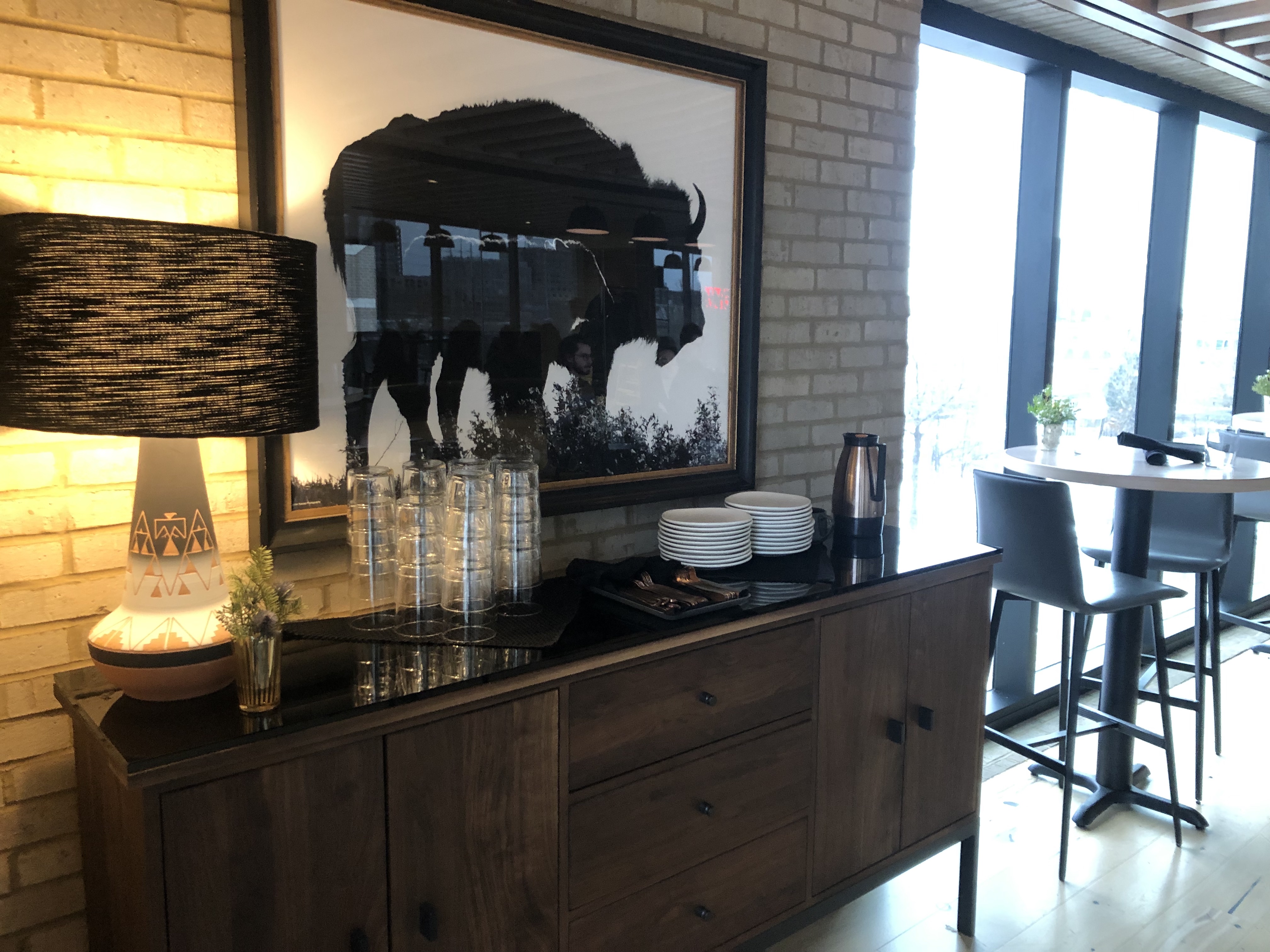
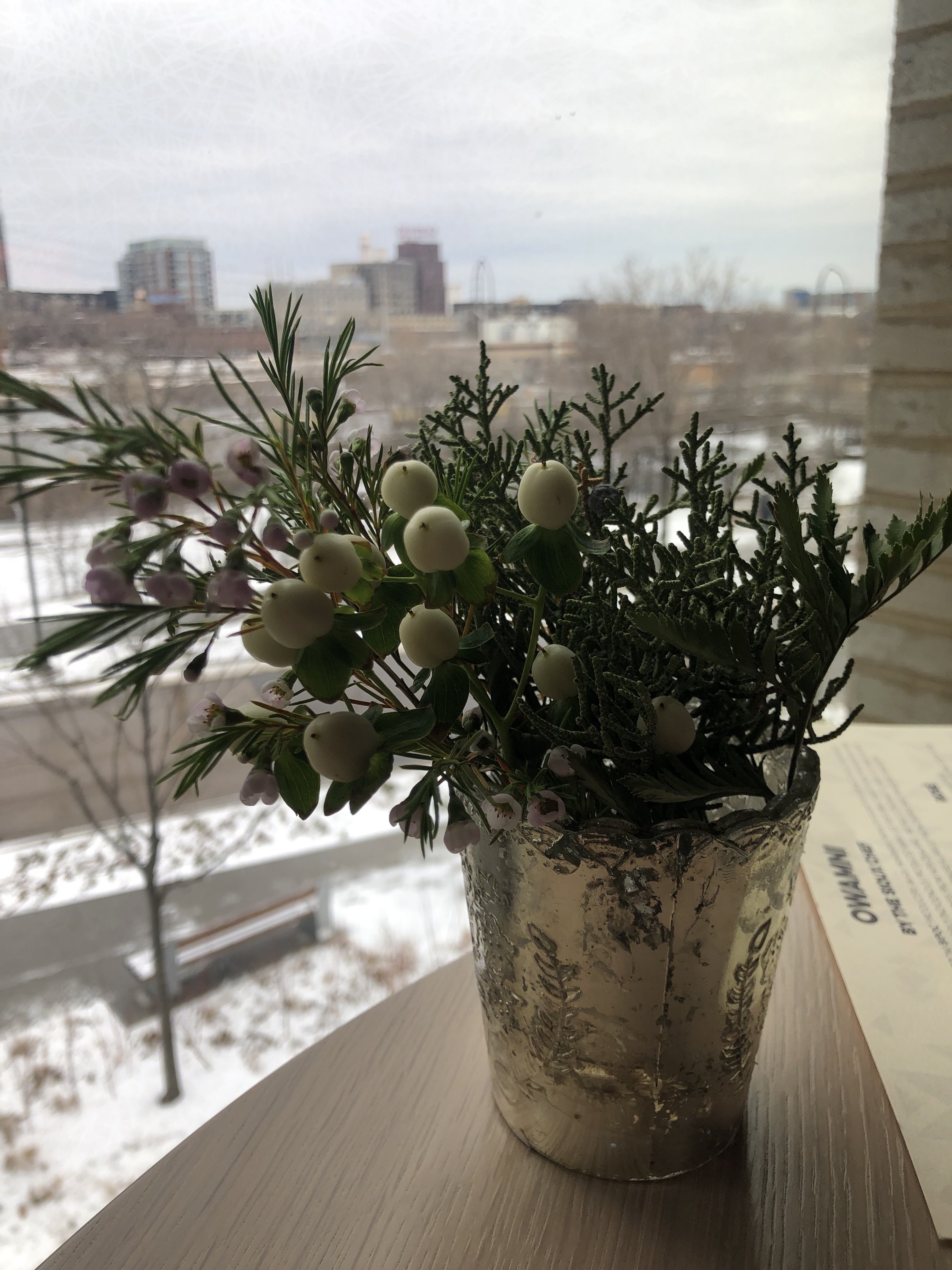
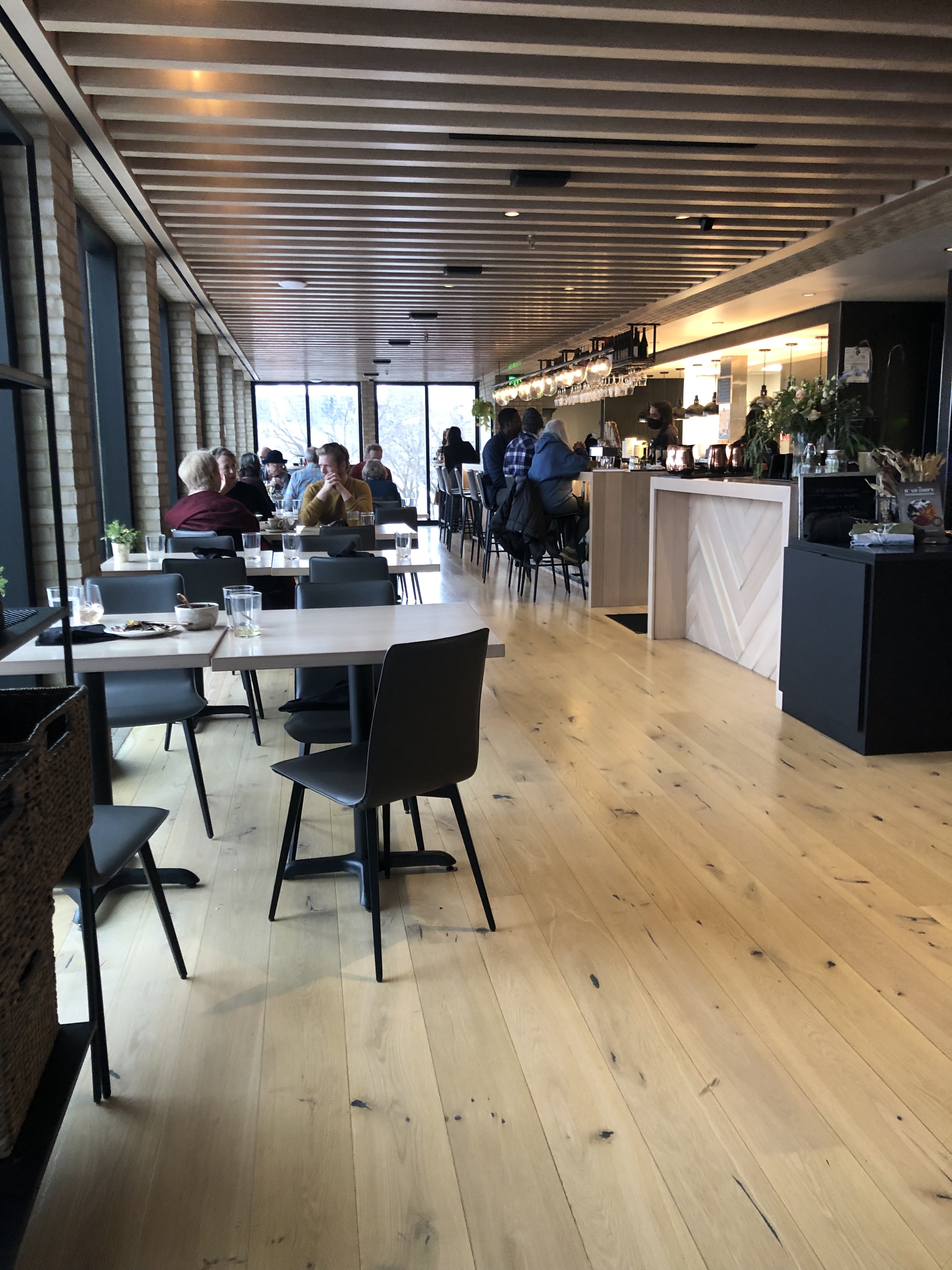
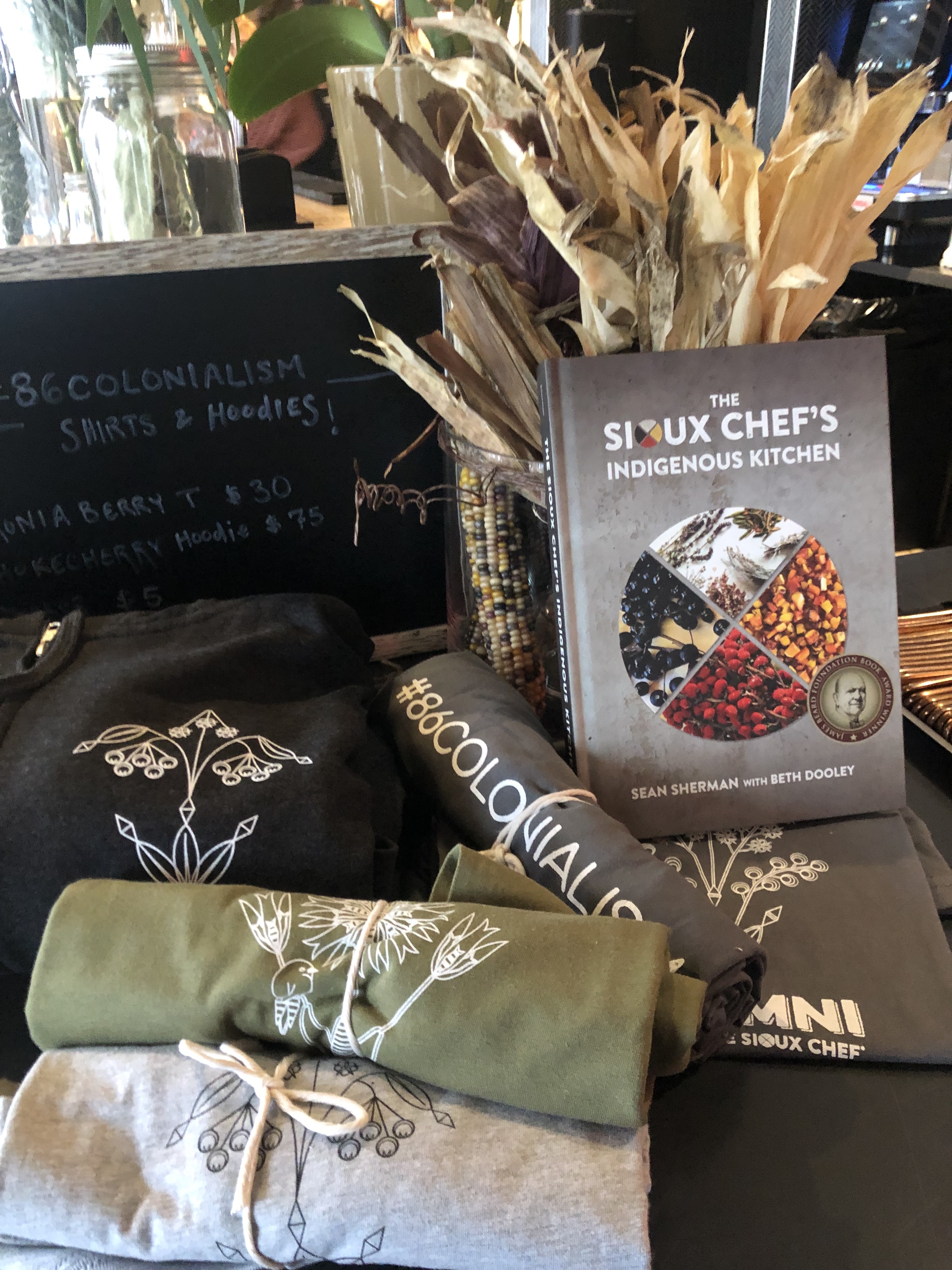
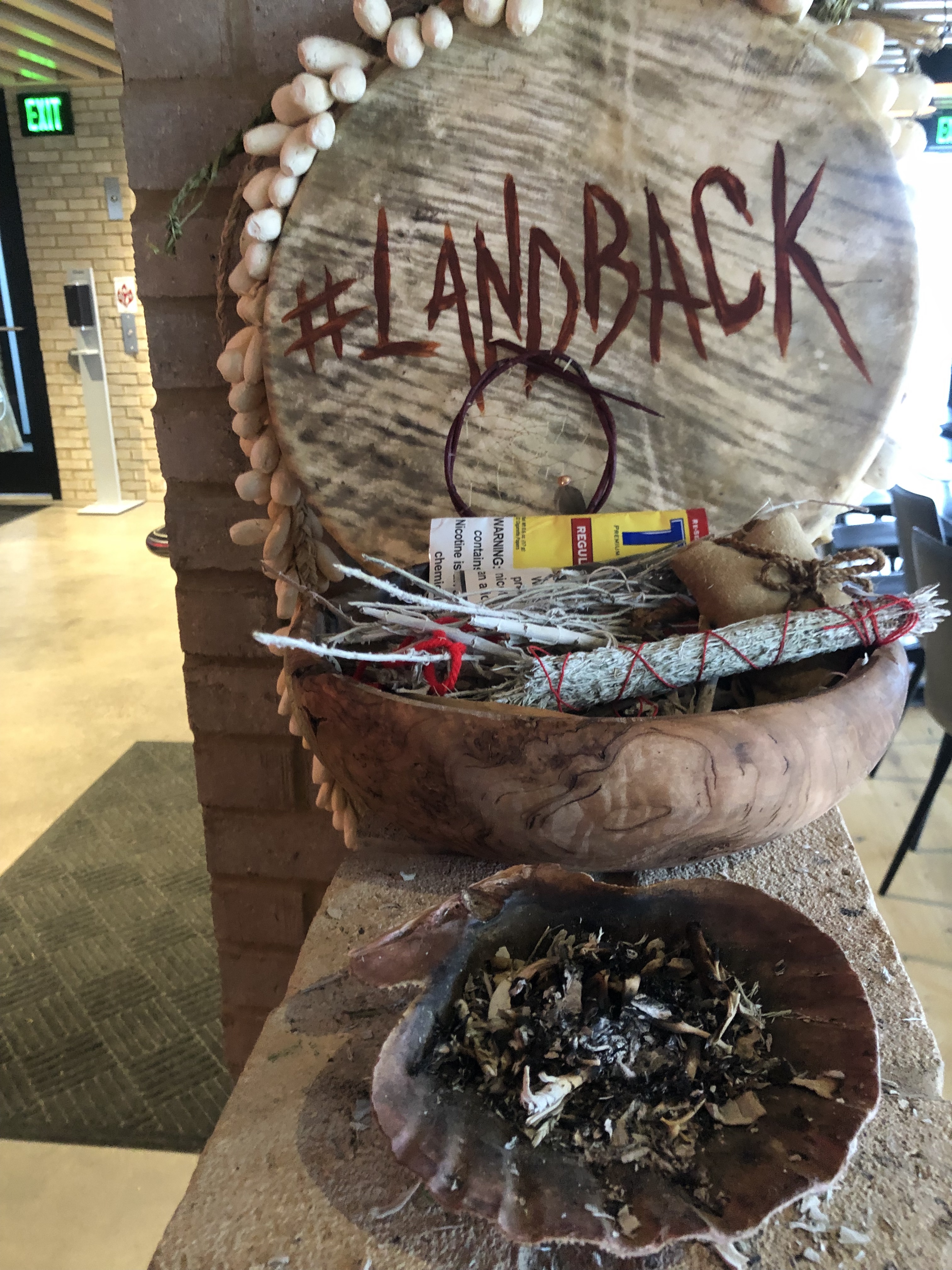
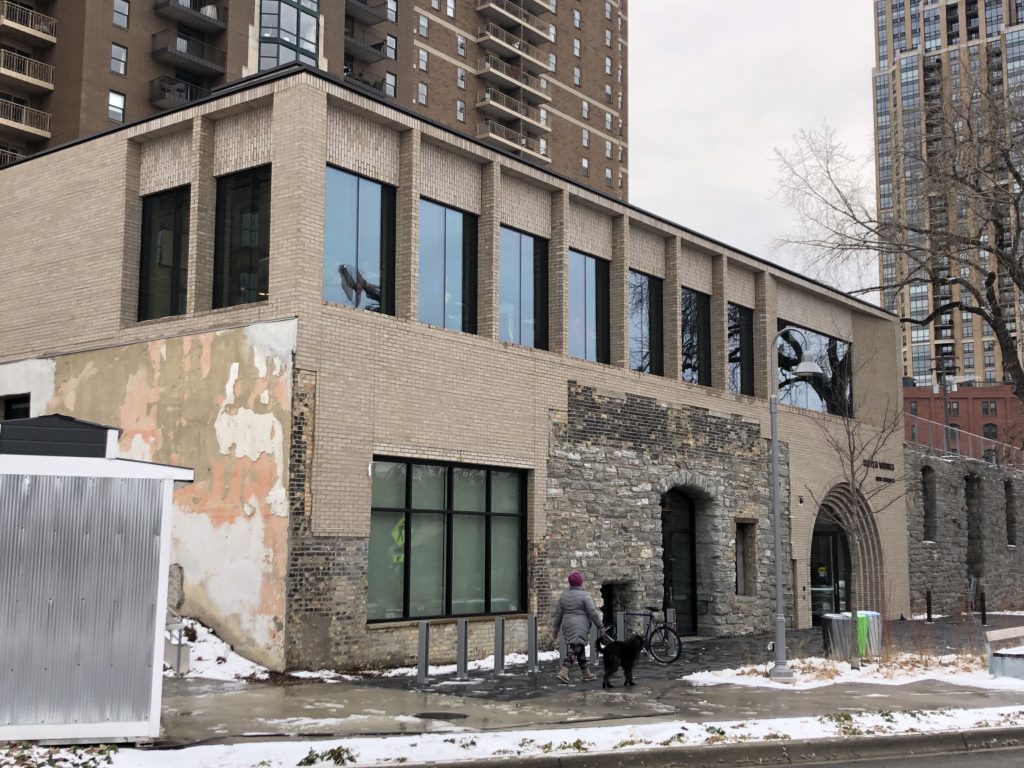
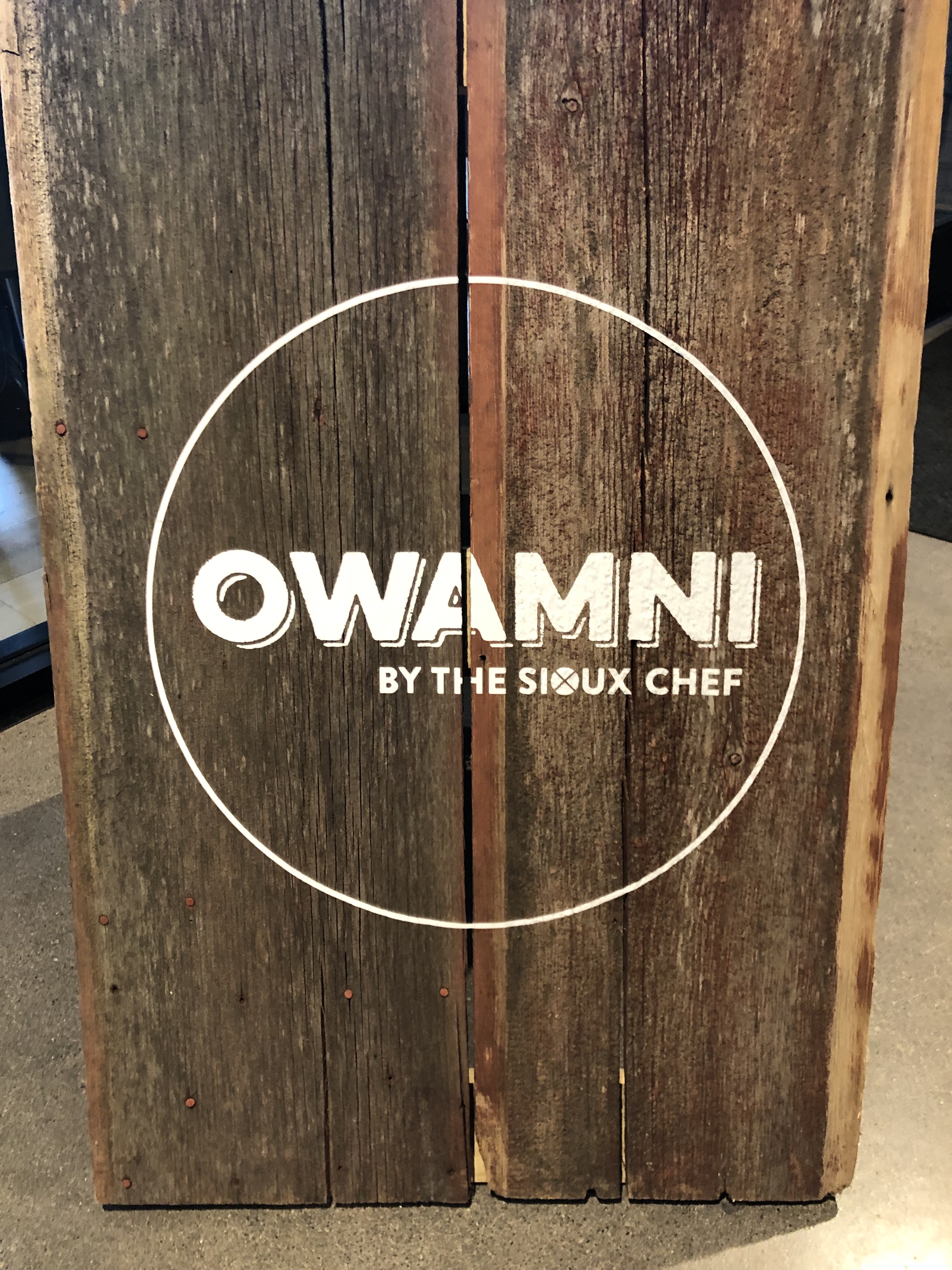
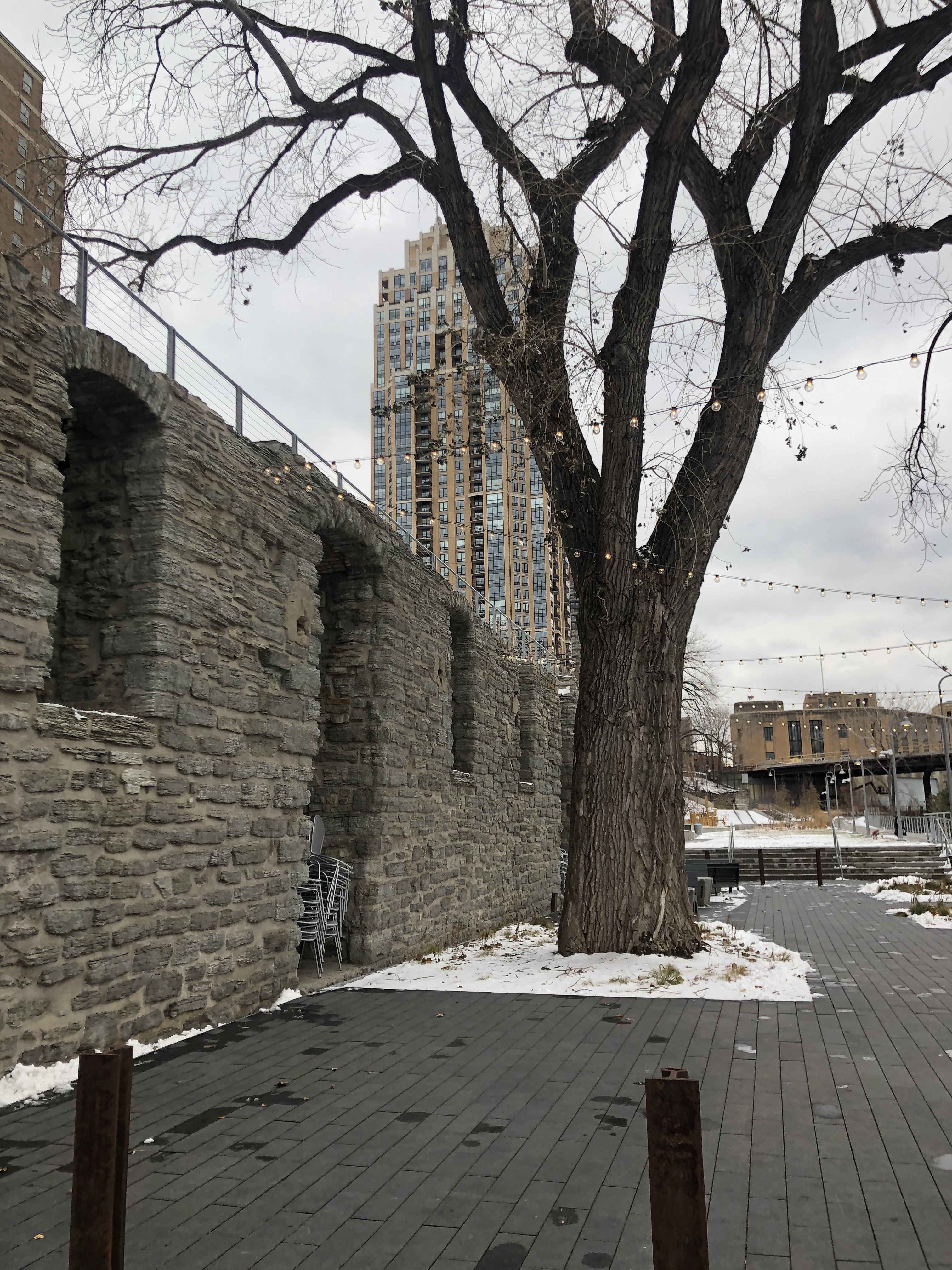
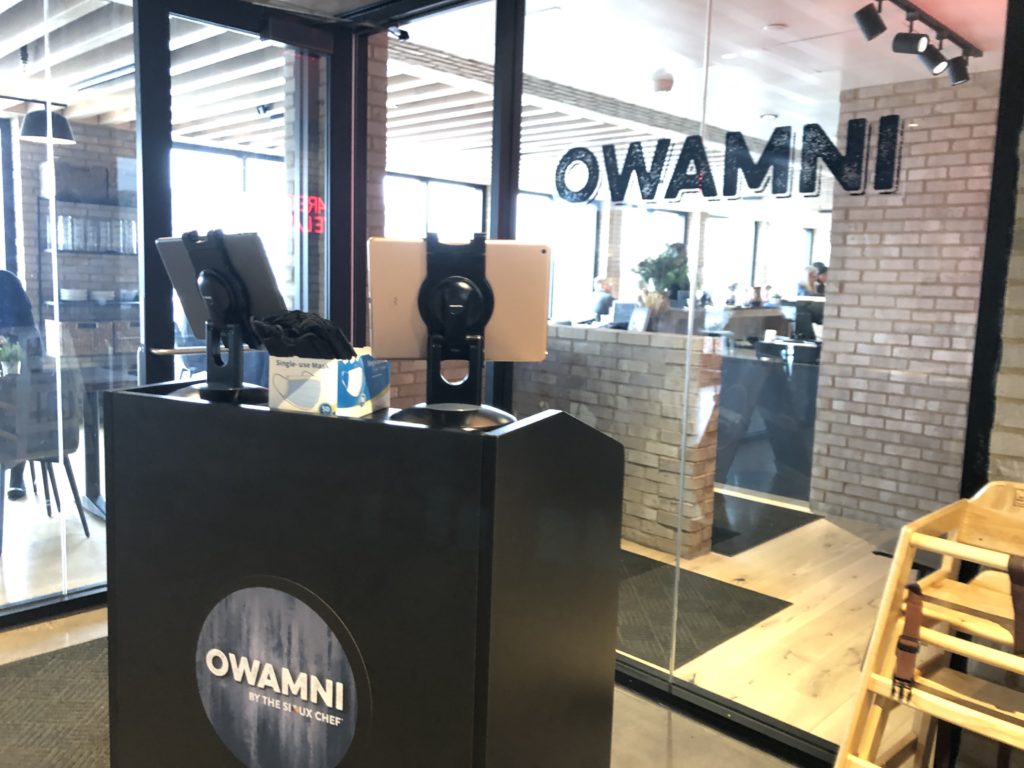
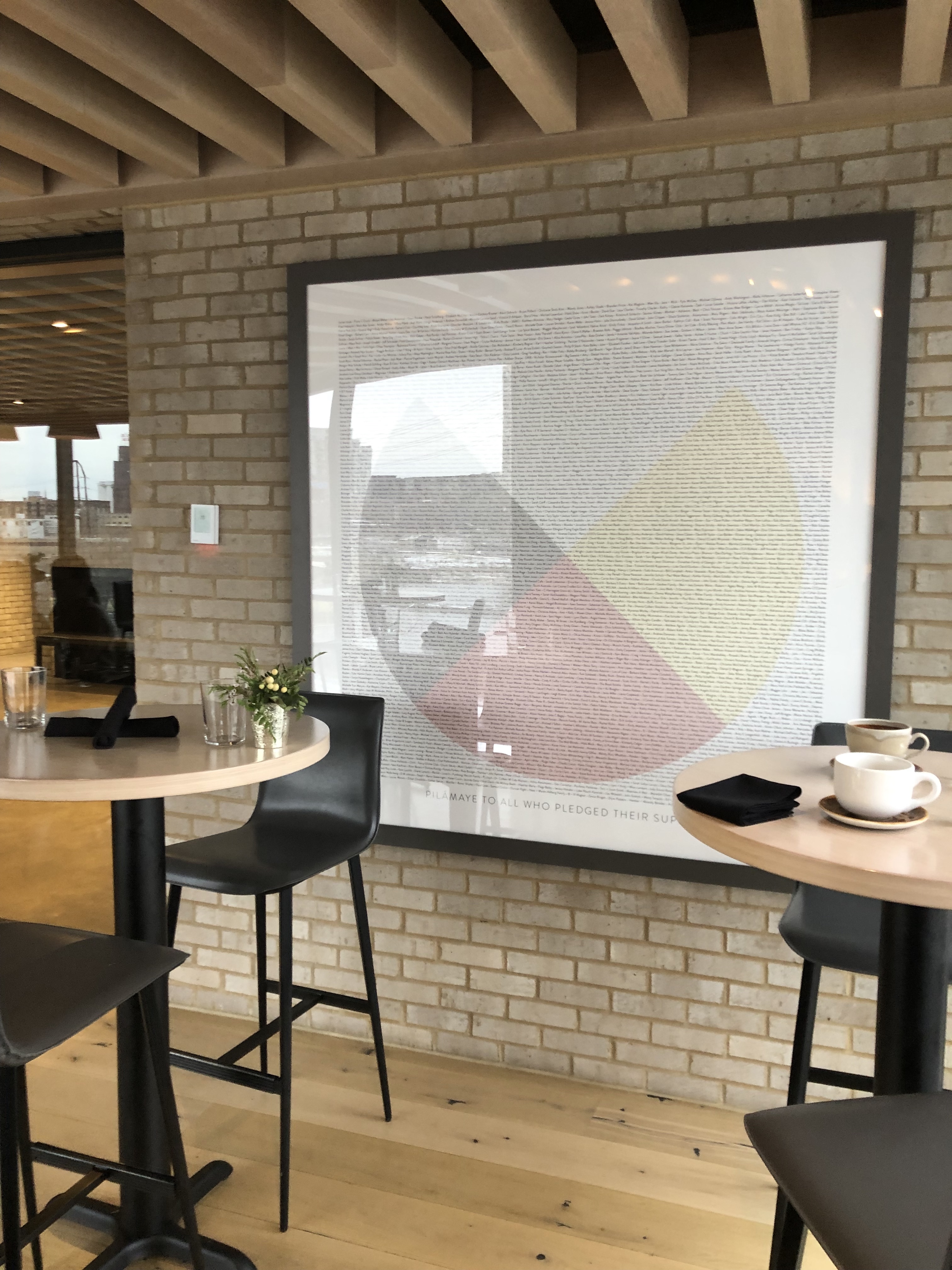
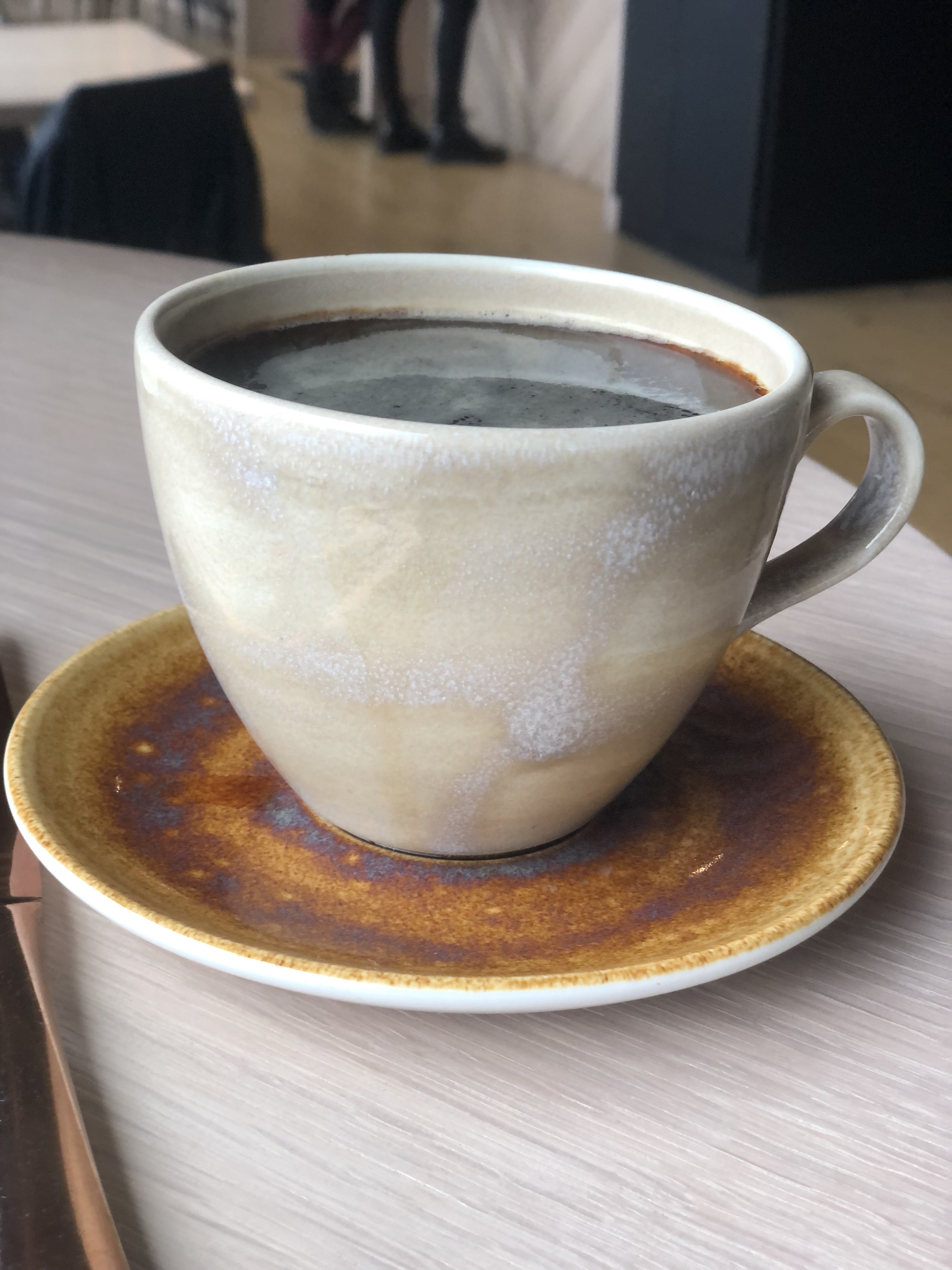
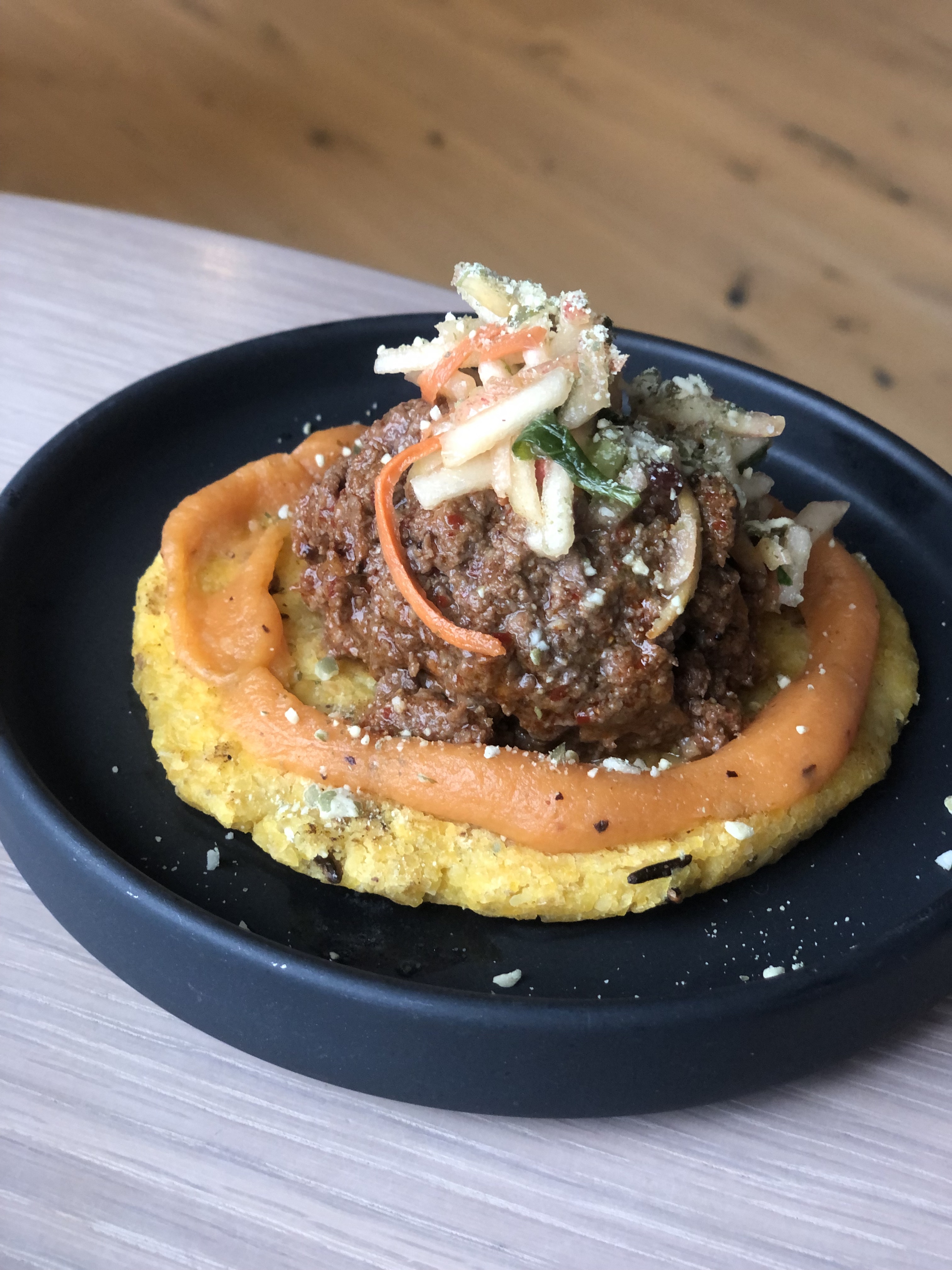
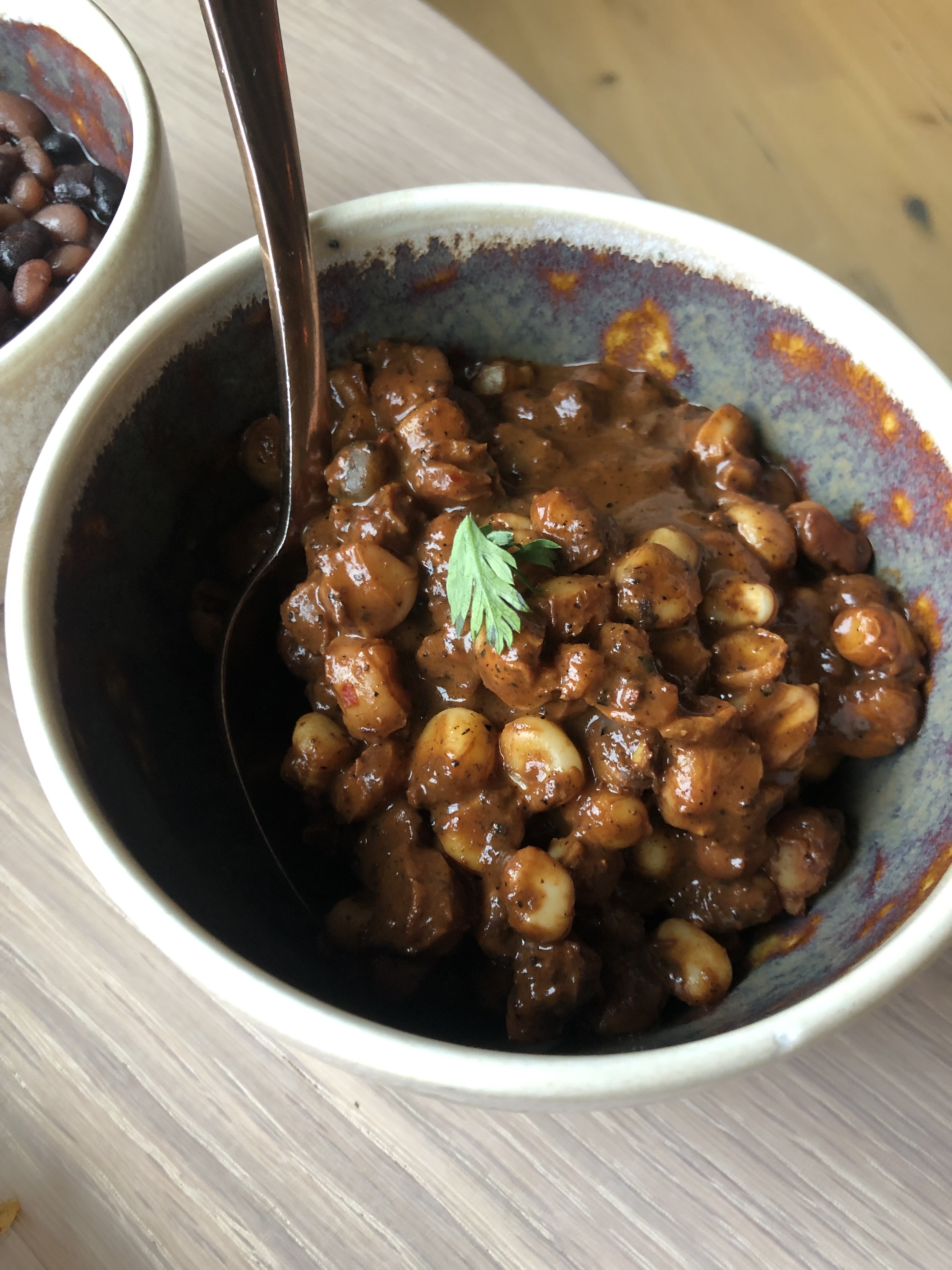
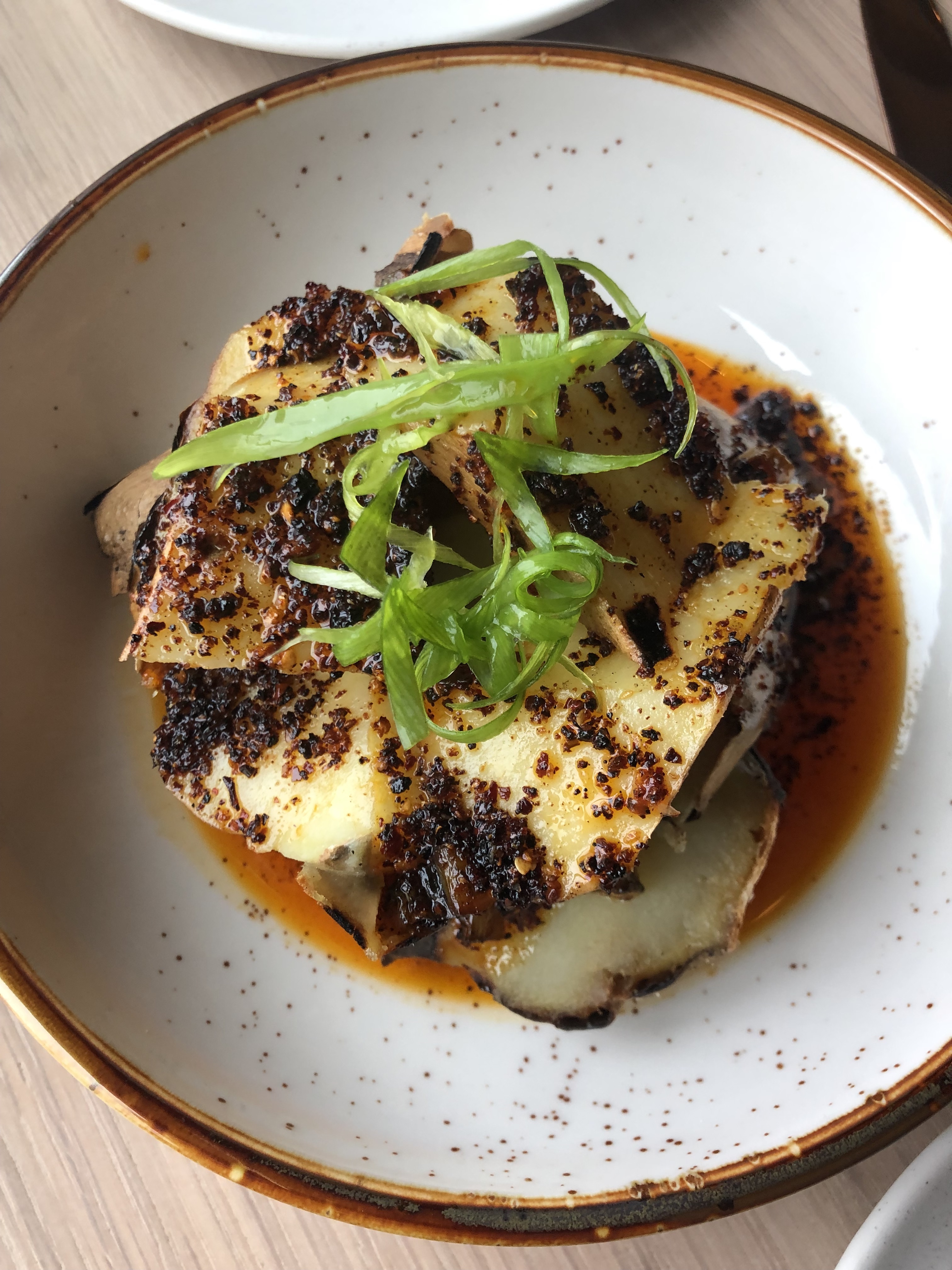
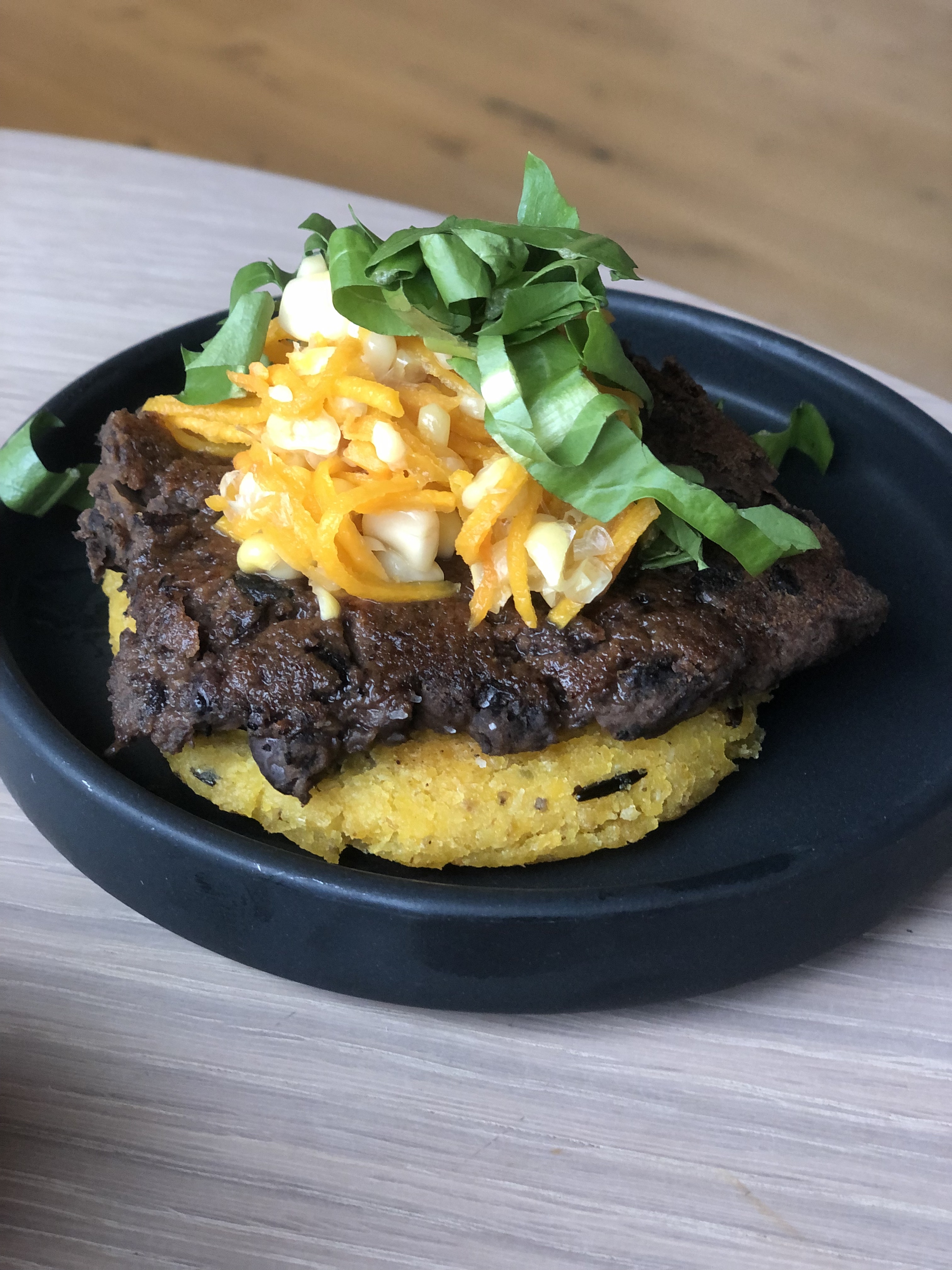
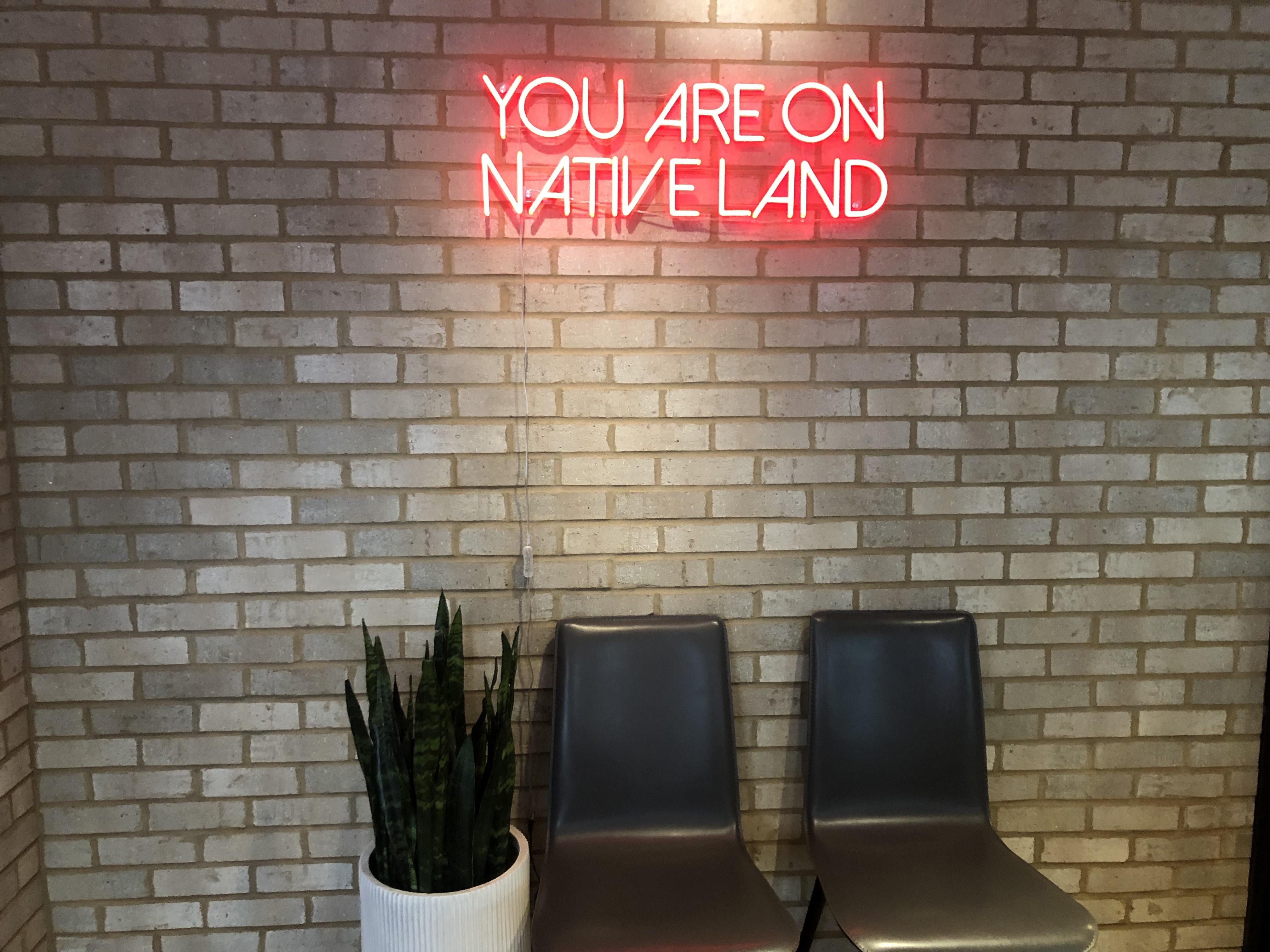



Comments are closed.